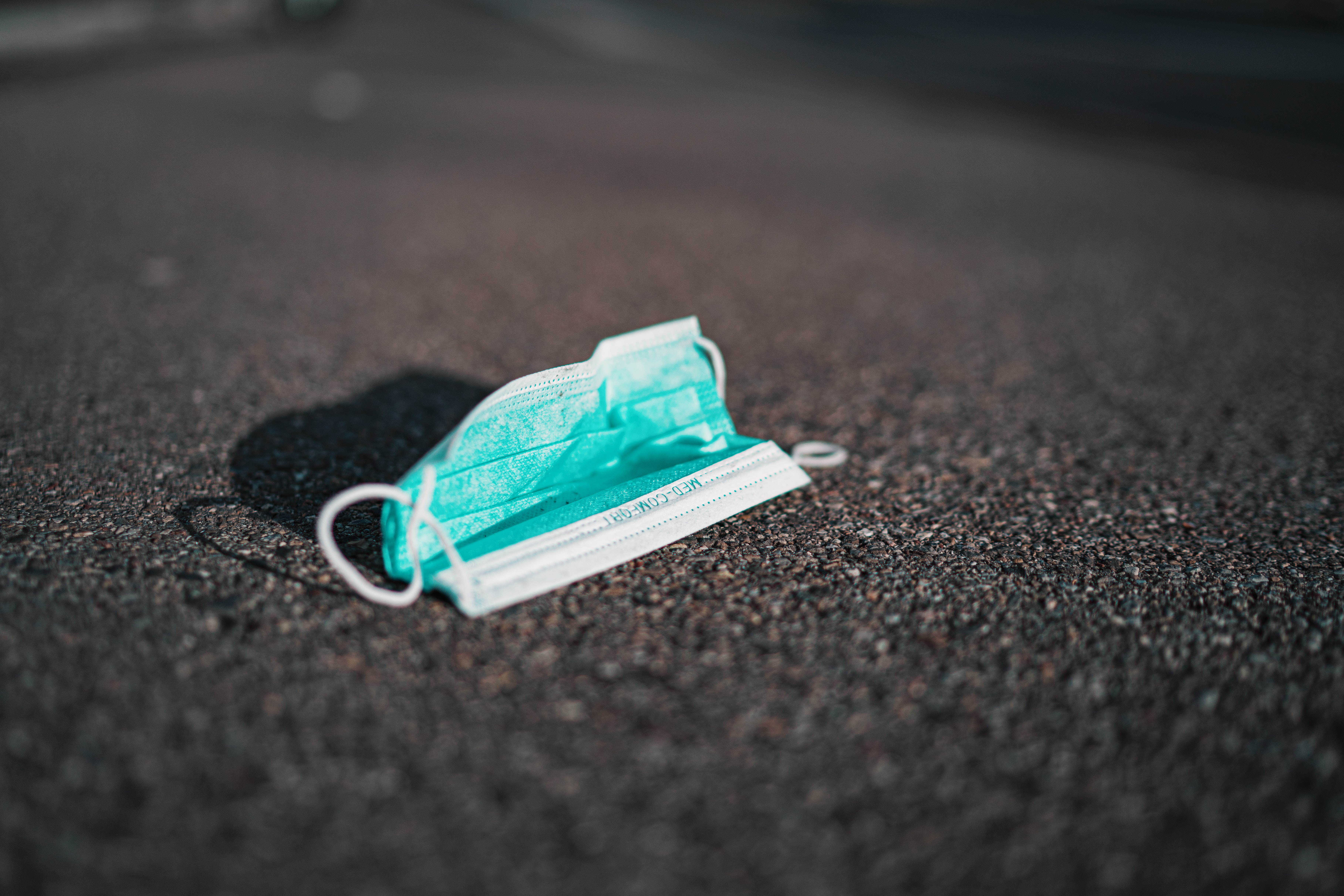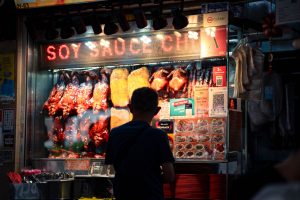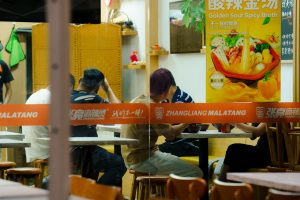It was the infamous weekend of February 7 when the Disease Outbreak Response System Condition (DORSCON) was upped to Level Orange. In other words, Singapore went into a frenzy.
Now, we are seeing the same thing happen in other countries like the US and even New Zealand, where impulse hoarders are emptying supermarkets across their local communities. And in countries like Italy and South Korea, the panic won’t be settling down anytime soon as Covid-19 cases pile up.
Looking back, the hysteria in Singapore lasted merely a weekend, with things somewhat returning to normal fairly quickly. Today, there is still worry in the air. In a densely populated city like ours, we are always on the brink of severe contagion after all—but at least there is no more chaos or widespread panic.
As other countries are falling into despair, it almost feels like the opposite is happening here—even as we are still getting new cases of the coronavirus every day. Why?
We decided to figure this out for ourselves, through a survey by independent research company Milieu. We asked 1000 Singaporeans how they held up during the outbreak, how well they thought the government and other citizens were doing in getting through this together and what actions they have taken in these regards.
First things first—yes, most Singaporeans agreed that the supermarket hoarding was not justifiable. I know you were wondering.
But now that we can all agree that being considerate is important in desperate times, let’s look at the fundamental takeaways of the survey: that Singaporeans trust the state and their fellow citizens to get the country out of the virus. But there’s a downside to this—which I’ll get to later.
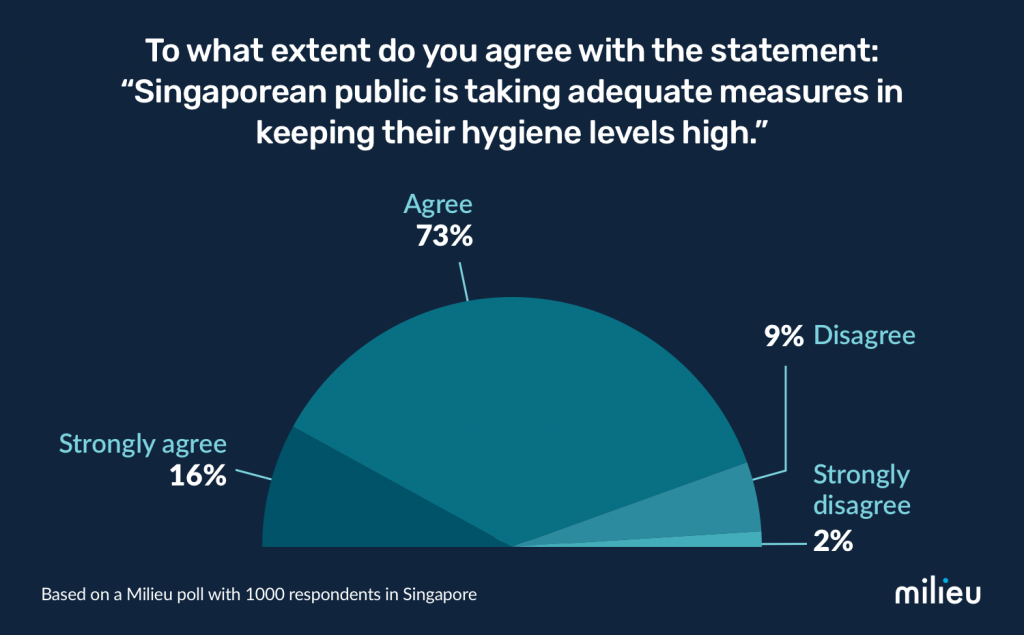
When asked whether they believed the Singaporean public was keeping their hygiene levels high, 74% agreed. When asked whether they believed the public was monitoring their health to prevent putting others at risk, 76% agreed.
We also asked whether responders thought that there would be a sufficient supply of daily essential products like food and toilet paper to last the outbreak, and 70% said they were either very or extremely confident that there would be. Basically, citizens trust that the government has a stockpile of products that will last through emergencies, and that others are following hygiene guidelines.
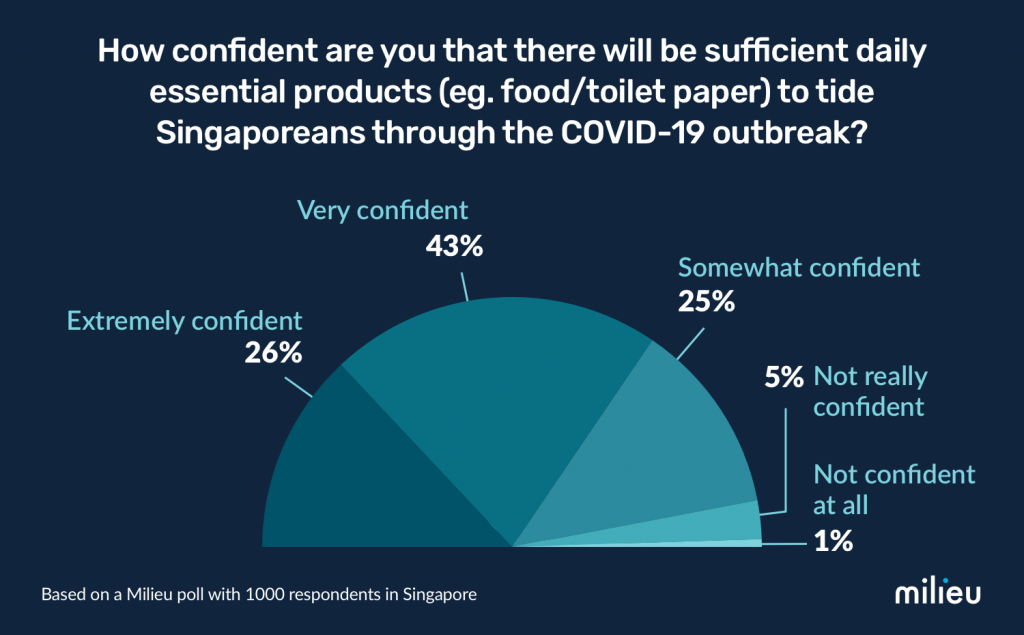
Responders also believed that Singaporeans could work together to overcome the outbreak, and showed concern for the safety of their families and other Singaporeans.
We asked how important it was for respondents that their families and themselves had the right medical supplies available to protect them from the outbreak, and 63% responded that it was either very or extremely important to them. 31% said it was somewhat important to them.
Possibly, the users who said it was only somewhat important to them were confident that they could rely on Singapore’s efficient healthcare system in the case they needed anything vital they didn’t have.
When we asked how important it was for them that Singaporeans in general have access to medical supplies, 60% agreed it was very or extremely or important to them.
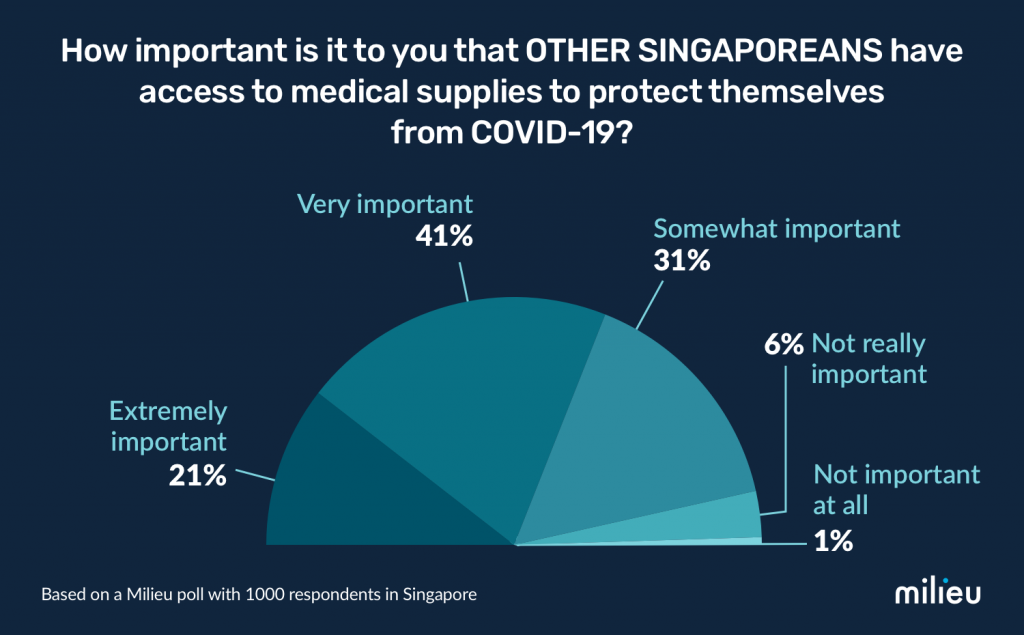
However, these worries didn’t directly translate into action. When it came to asking the respondents if they had gone out of their way to help other people—the results were a different story.
We asked whether they had offered to share medical or daily supplies with anyone—and 48% said no.
A little less than half of the respondents said they offered to share medical supplies, like masks, hand sanitisers or thermometers, to someone they knew. Only 9% had offered to share them with a stranger.
As for daily essential products, the numbers were even lower. 23% offered to share theirs with people they knew—while only 7% offered to share them with strangers.
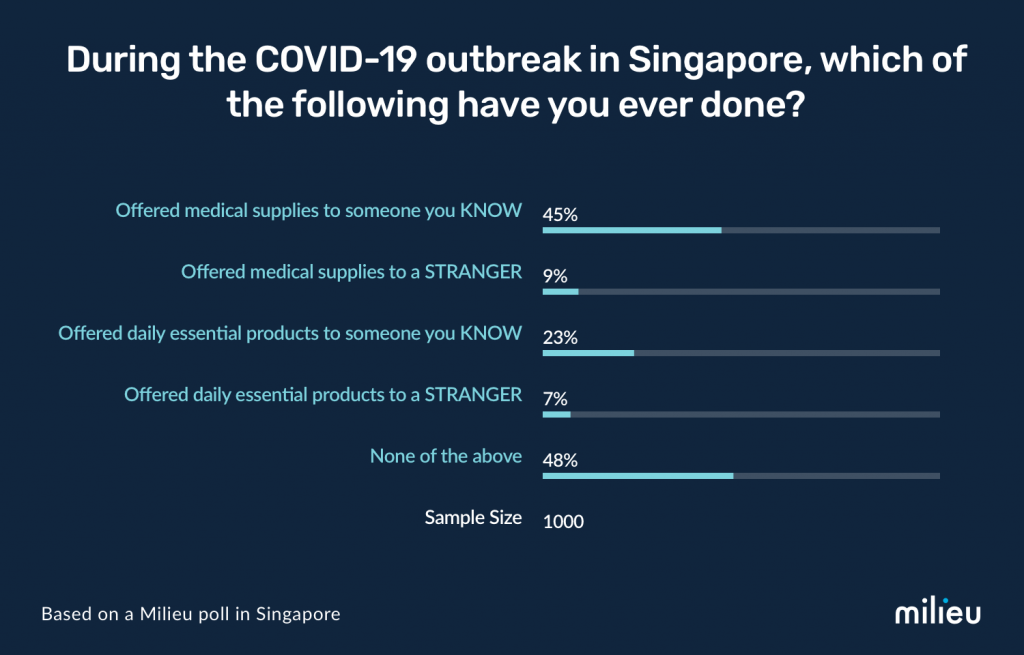
Overall, the sentiments of worry don’t translate to action done. This may come to a surprise considering the stories that have been circulating of Carousellers giving away free masks, students delivering food to students on leave of absence and grab drivers who offered their services for free to healthcare practitioners—but our survey suggests these are the exceptions.
The results don’t necessarily say something grim either, because we should consider how this could in itself speak positively of Singapore’s system. Maybe, there were enough supplies in the community in general that there wasn’t a need to share? After all, the government did distribute 4 masks per household.
On top of that, employers are implementing work from home policies. Most office buildings, gyms, community centers and condominiums require temperature screenings upon entering their premises. Food outlets provide hand sanitisers.
All these efforts protect us, so what is left to be done on a grassroots level?
There is no denying Singapore did an exceptional job at containing the virus, but there are always people who will fall through the cracks. There are people with disabilities who struggled to get to supermarkets and pharmacies to buy supplies. 4 masks may not be enough for big families. There are kids and the elderly who are more susceptible to the virus. And then there are migrant workers.
To protect everyone, we need to translate our worries into action, especially in our communities. Take the examples I mentioned above, or the people who place hand sanitisers in elevators across the country—even if many get stolen.
Now that the virus has gone global, there’s still the possibility of a second wave hitting Singapore. The worst may not be over, and we cannot become complacent. The system we live in will continue to protect the majority, but we cannot forget that our personal efforts make a difference too.

